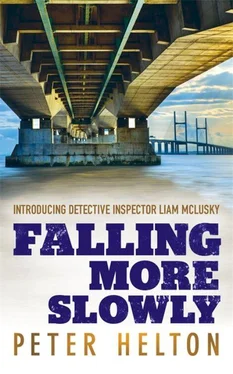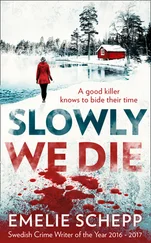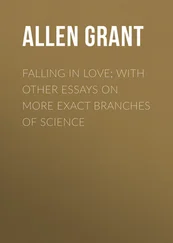Peter Helton - Falling More Slowly
Здесь есть возможность читать онлайн «Peter Helton - Falling More Slowly» весь текст электронной книги совершенно бесплатно (целиком полную версию без сокращений). В некоторых случаях можно слушать аудио, скачать через торрент в формате fb2 и присутствует краткое содержание. Год выпуска: 2010, ISBN: 2010, Издательство: Soho Press, Жанр: Полицейский детектив, на английском языке. Описание произведения, (предисловие) а так же отзывы посетителей доступны на портале библиотеки ЛибКат.
- Название:Falling More Slowly
- Автор:
- Издательство:Soho Press
- Жанр:
- Год:2010
- ISBN:9781849018982
- Рейтинг книги:3 / 5. Голосов: 1
-
Избранное:Добавить в избранное
- Отзывы:
-
Ваша оценка:
- 60
- 1
- 2
- 3
- 4
- 5
Falling More Slowly: краткое содержание, описание и аннотация
Предлагаем к чтению аннотацию, описание, краткое содержание или предисловие (зависит от того, что написал сам автор книги «Falling More Slowly»). Если вы не нашли необходимую информацию о книге — напишите в комментариях, мы постараемся отыскать её.
Falling More Slowly — читать онлайн бесплатно полную книгу (весь текст) целиком
Ниже представлен текст книги, разбитый по страницам. Система сохранения места последней прочитанной страницы, позволяет с удобством читать онлайн бесплатно книгу «Falling More Slowly», без необходимости каждый раз заново искать на чём Вы остановились. Поставьте закладку, и сможете в любой момент перейти на страницу, на которой закончили чтение.
Интервал:
Закладка:
At intervals Charlene checked over her shoulder to see if anyone was there. If she saw someone she would run. Not that she could run very far, not with her asthma, but there were cars driving up there, she would make it that far.
There was no one. No one but her. No one else was stupid enough to use this shortcut, she thought icily.
Charlene could feel herself go wheezy — hell, she could hear herself go wheezy, it was so quiet on this stretch. She stopped, got out her inhaler, always in her left jacket pocket, shook it and took a deep suck into her lungs. That was better. Her biggest fear was that one day it would simply stop working. One day she would use her puffer and nothing would happen. She was only seventeen now, could you really live all your life relying on your inhaler being there when you felt that someone had stolen all the oxygen from the air? But then you never knew, they might find a cure for asthma though she wasn’t sure they were actually looking for one.
As she set off again, aiming for the weak puddle of light that a sodium lamp from the bridge threw on to the path, a shiny object near the edge of it drew her eye. It gave her something else to aim for, would take her mind off things for the next few yards. Probably broken glass, there seemed to be a lot of it lying about, mostly beer bottles. But this was no beer bottle, the thing looked square. As she got closer she thought she knew what it was and quickened her step, despite still feeling a little wheezy. No longer checking behind her now.
It was a mobile phone. Not the latest model but not a crap one either. Black and silver and so heavy in the hand. Not a scratch on it, it looked polished in the gloom. Charlene didn’t own a mobile, simply couldn’t afford it at the moment. Every kid in the street had a mobile, the parents probably picked up the bill. Even though she was working five days at the canteen she couldn’t afford it. She wondered whether this one worked, it would be just her luck to find a broken one. Where did you switch this on? This button at the top, she supposed.
The tongue of magnesium-powered flame that shot straight into her mouth seemed to consume all the oxygen in the world. She had swallowed live coals and now her head was on fire. While the melting plastic of the phone’s casing fused with the burning flesh of her hand she staggered back, trying to escape from the blinding swirls of coloured pain in front of her eyes. With her airways soldered shut with fear, panic and fire she whirled around, unseeing, hoping to extinguish the fire in her face and hand. She didn’t realize that she was already falling, pitching sideways into the oily water with a silent scream. The other reason she hated walking by the river: she had never learned to swim. The ice-cold grip of the black water mixed with the fire in her mouth, indistinguishable. Charlene kicked her legs and thrashed her arms, straining towards what she thought was the surface, what she hoped was up, but it was dark now, cold and black. The pain in her chest was raging, it became huge, it became unbearable, her heart punched like a fist into her throat. Nowhere was up, it was all down, it was all black. Charlene stopped struggling and the pain popped like a child’s balloon.
‘Mum being in and out of hospital all the time is how I learnt to cook. No, it’s a lie, my dad trying to cook for us, that’s what did it. He was awful. In the kitchen, I mean. Can you cook?’
‘Don’t know, never tried it.’ His stomach rumbled but McLusky didn’t mind waiting. He lit another cigarette and poured more wine. What for him made this unexpected domesticity quite acceptable was that the cook was messy and dressed in nothing but a T-shirt.
At first Rebecca had just been there, then been there again, then been there still. Soon a portfolio, a messy bundle of drawings and a toolbox had appeared, along with a holdall full of clothes. On cue the fridge-freezer was delivered. The empty fridge had given rise to shopping. This in turn had spawned cooking.
‘Seriously?’
‘I’ve been known to boil potatoes and shove lamb chops under the grill.’
‘That’s cooking. One step up from heating up ready-meals, anyway.’
The sound of his airwave springing to life next door made McLusky even hungrier. He groaned theatrically.
Rebecca turned round to face him. Blood red sauce spattered from the spoon she held aloft on to the floor. ‘What?’
‘Work.’
‘Tell them you’re a hundred miles away, visiting sick relatives. That’s what I always do.’
‘Ah, that doesn’t work any more. Airwave radio has GPS. They know exactly where I am.’
‘Then don’t answer it.’
‘There’s always that, I suppose.’
He answered it, scribbled down the unfamiliar street references and promised he was on his way.
‘But what about your supper?’
The sentence had a painful familiarity about it, despite coming from the lips of a half-naked girl he barely knew. Her voice still had the fresh tone of surprise, regret and genuine commiseration it would soon lose. Given time the tone of that same sentence would change first to resignation, then resentment and accusation.
‘Leave me some.’ He stooped to kiss her goodbye. ‘What is it, anyway?’
‘Not telling you now.’ She kissed him, wrapping arms and one leg around him, a hero’s goodbye. ‘Is it at least something important?’
‘It is to someone.’ He took a deep breath, his nostrils filling with the fragrance of her hair, the aroma of her food. He pulled away with twin regrets.
A short necklace of arc lights had already been strung along the riverside. He abandoned his car at the end of a line of police vehicles on the road and stood next to a muddy bicycle by some railings near a large landlocked ship’s anchor. This stretch of water was called the Cumberland Basin, he had learned over the radio, and somewhere close by was something called the Floating Harbour. Here a paved path ran along the basin between the bridges. Now it was busy with officers and crime scene technicians but before their arrival it had to have been deserted at this time of the day and year. Another blank patch on McLusky’s mind-map of the city had been filled in. But ultimately it made no difference where this was. Death loved dark water but had never been choosy. If what had occurred down there turned out to be murder then this dismal stretch of water would forever appear as a stain on the emotional map he carried to navigate the city by. When the stains on the map began to run into each other then it might be time to move on. Or take early retirement.
Flashing his ID to the constable standing guard at the anchor was unnecessary: the PC recognized him from the Easter egg bomb as a sarcastic CID bastard. When he saw McLusky bend over the edge to get a look at a frogman in the water he fervently wished someone would nudge him in.
Most of the activity was concentrated in an area where the body had been pulled from the river. The pathologist was there already, kneeling white-suited by a rectangle of tarpaulin on which rested the body of a woman. It was fully clothed, which was always good news.
McLusky suited up; it gave him time to remember the pathologist’s name before approaching him. ‘Evening, Dr Coulthard.’
‘Inspector …’
The pathologist concentrated his examination on the face and neck of the victim. Here scorch marks were the prominent feature, clearly discernible even under the covering of oily slime. The victim’s right hand was encased in a clear evidence bag, secured at the wrist with a soft tie.
‘Any clues as to the cause of death yet?’
‘Mm? Not really, but my guess is that she drowned.’
‘Then what’s with her face, are those burn marks around her mouth?’
Читать дальшеИнтервал:
Закладка:
Похожие книги на «Falling More Slowly»
Представляем Вашему вниманию похожие книги на «Falling More Slowly» списком для выбора. Мы отобрали схожую по названию и смыслу литературу в надежде предоставить читателям больше вариантов отыскать новые, интересные, ещё непрочитанные произведения.
Обсуждение, отзывы о книге «Falling More Slowly» и просто собственные мнения читателей. Оставьте ваши комментарии, напишите, что Вы думаете о произведении, его смысле или главных героях. Укажите что конкретно понравилось, а что нет, и почему Вы так считаете.












